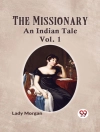The Dualitists (1887) is a short story by Irish author Bram Stoker. Written at the beginning of his career, The Dualitists helped to establish the Irish master of Gothic horror’s reputation as a leading writer of the early-twentieth century. Controversial for its gruesome subject matter and bleakly comedic vision of corrupted youth, The Dualitists is a largely underappreciated story that deserves reassessment by readers and academics alike. After years of trying to have children, a husband and wife finally find cause to celebrate. Welcoming a set of identical twins into the world, they prove far too lenient, doting on their boys while turning a blind eye to their mischievous behavior. Starting with objects and furniture around the home, the twins are consumed by their destructive tendencies. Soon, they grow tired of breaking things, and begin experimenting with live subjects, first on animals, and then on the children of their neighborhood. As their acts grow more violent by the day, their strange ability to pacify their parents proves not only unsettling, but increasingly dangerous to all who stand in their path. The Dualitists is a gripping work of horror and black comedy by Bram Stoker, the secretive and vastly underrated creator of Dracula, one of history’s greatest villains. This edition of Bram Stoker’s The Dualitists is a classic of Irish literature reimagined for modern readers.
Since our inception in 2020, Mint Editions has kept sustainability and innovation at the forefront of our mission. Each and every Mint Edition title gets a fresh, professionally typeset manuscript and a dazzling new cover, all while maintaining the integrity of the original book.
With thousands of titles in our collection, we aim to spotlight diverse public domain works to help them find modern audiences. Mint Editions celebrates a breadth of literary works, curated from both canonical and overlooked classics from writers around the globe.
Despre autor
Bram Stoker (1847-1912) was an Irish novelist. Born in Dublin, Stoker suffered from an unknown illness as a young boy before entering school at the age of seven. He would later remark that the time he spent bedridden enabled him to cultivate his imagination, contributing to his later success as a writer. He attended Trinity College, Dublin from 1864, graduating with a BA before returning to obtain an MA in 1875. After university, he worked as a theatre critic, writing a positive review of acclaimed Victorian actor Henry Irving’s production of Hamlet that would spark a lifelong friendship and working relationship between them. In 1878, Stoker married Florence Balcombe before moving to London, where he would work for the next 27 years as business manager of Irving’s influential Lyceum Theatre. Between his work in London and travels abroad with Irving, Stoker befriended such artists as Oscar Wilde, Walt Whitman, Hall Caine, James Abbott Mc Neill Whistler, and Sir Arthur Conan Doyle. In 1895, having published several works of fiction and nonfiction, Stoker began writing his masterpiece Dracula (1897) while vacationing at the Kilmarnock Arms Hotel in Cruden Bay, Scotland. Stoker continued to write fiction for the rest of his life, achieving moderate success as a novelist. Known more for his association with London theatre during his life, his reputation as an artist has grown since his death, aided in part by film and television adaptations of Dracula, the enduring popularity of the horror genre, and abundant interest in his work from readers and scholars around the world.












